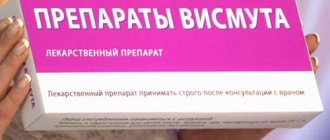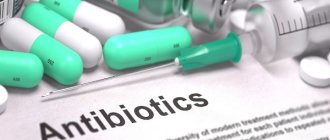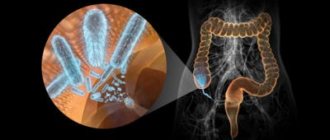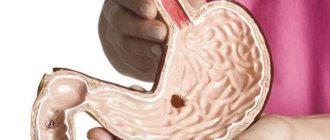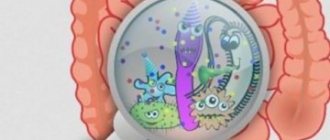Currently, a common reason for visiting doctors is problems in the gastrointestinal tract. Almost each of them is characterized by impaired motor function. However, they can appear as symptoms of a disease not related to the digestive system. In any case, there is no way to do without prokinetic drugs. The list of drugs in this group has no limiting framework. Therefore, each doctor selects a drug depending on the course of the disease. Next, let's take a closer look at what prokinetics are, a list of new generation drugs most often used for treatment.
Prokinetics: general characteristics
Medicines that change the motor activity of the intestinal tract, speed up the process of food transit and emptying, belong to this group.
As mentioned above, there is no single list of these drugs in the gastroenterological literature. Each doctor includes his own list of medications here. These include medications of other groups, such as: antiemetics, antidiarrheals, as well as some antibiotics of the macrolide group, hormonal peptides. First, let's find out what the pharmacological action of this group of drugs is.
Dopamine receptor blockers
Drugs in this group are divided into selective and non-selective. Their action is that they stimulate the motor function of the stomach and have antiemetic properties. What are these prokinetics? The list of medications is as follows:
- "Metoclopramide."
- "Bromopride."
- "Domperidone".
- "Dimetpramide".
The main active ingredient is metoclopramide, it has been used for quite a long time. The action is as follows:
- Increased activity of the lower esophageal sphincter.
- Acceleration of stomach emptying.
- Increasing the speed of food movement through the small and large intestines.
However, non-selective drugs can cause serious side effects.
There are widely known first-generation prokinetics. List of drugs:
- "Cerucal".
- "Raglan".
- "Perinorm".
- "Ceruglan".
One of the disadvantages is the ability to cause signs and symptoms of parkinsonism in adults and dyskinetic syndrome in children, and menstrual irregularities in women.
Second-generation selective drugs include drugs with the active ingredient domperidone. These medications do not cause severe side effects, but others may occur:
- Drowsiness.
- Weakness.
- Anxiety.
- Headache.
It is for this reason that drugs with the active substance domperidone are the best prokinetics. List of drugs:
- "Motilium".
- "Domidon".
- "Motinorm".
- "Motorix".
- "Gastropom".
Classification of drugs
Depending on the principle of action on various parts of the gastrointestinal tract, prokinetics are divided into several main types:
| Group name | Peculiarities | Drugs |
| Dopamine receptor blockers | This group is further divided into two subgroups: selective and non-selective. Their main effect is the activation of the motor function of the stomach. In addition, these drugs also have an antiemetic effect. The main component is metoclopramide, which activates the lower part of the esophageal sphincter, accelerates the processing of food in the stomach, and increases the speed of movement of processed foods through the intestines. |
|
| 5-HT3 receptor antagonists | Prokinetics included in this group are intended for the treatment or prevention of vomiting and nausea. Taking them speeds up the processing of food in the stomach, increases the speed of food movement through the intestines, and normalizes intestinal tone. Due to the release of acetylcholine, motor function improves. |
|
| 5-HT3 receptor agonists | Or as they are also called intestinal prokinetics in medicine, they are created on the basis of tegamerod. This substance has a positive effect on the motor and evacuation functions of the intestine. With their help, it is possible to quickly bring stool back to normal and eliminate intestinal irritation. |
|
New generation prokinetics
Second-generation selective prokinetics include drugs with the active substance itopride hydrochloride. Such products have gained recognition due to their excellent therapeutic effect and the absence of side effects even with long-term use. Most often doctors prescribe:
- "Itomed."
- "Ganatom".
- "Itopride."
This can be explained by the positive properties of itopride hydrochloride:
- Improving the motor and evacuation function of the stomach.
- Increased gallbladder activity.
- Increasing the dynamism and tone of the muscles of the large and small intestines.
- Helps eliminate duodenogastric reflux.
Intestinal prokinetics
These include prokinetics - 5-HT3 receptor agonists. The active substance is tegaserod. It has a positive effect on the motor and evacuation function of the large and small intestines. Helps normalize stool and reduce symptoms of irritable bowel.
Does not cause an increase in blood pressure and has no effect on the cardiovascular system. However, there are a fair number of side effects. The risk of stroke, angina pectoris, and anginal attack increases several times. Currently, drugs with this active substance have been discontinued in our country and in a number of other countries for further research. This includes the following prokinetics (list of drugs):
- "Tegaserod."
- "Zelmak".
- "Fractal".
5-NT3 receptor antagonists
Prokinetics in this group are suitable for the treatment and prevention of nausea and vomiting. When taken, the residence time of food in the stomach decreases, the rate of food transit through the intestines increases, and the tone of the large intestine normalizes.
The release of acetylcholine is observed, and the motor function of the gastrointestinal tract improves. Currently, modern prokinetics are in great demand among patients and doctors. List of new generation drugs:
- "Tropisetron".
- "Sturgeon".
- "Ondasetron".
- "Silancetron".
I would like to note that 5-NT3 receptor antagonists do not have a therapeutic effect if vomiting is caused by apomorphine.
These drugs are well tolerated, although they have side effects:
- Headache.
- Constipation.
- Flushes of blood.
- Feelings of heat.
Another advantage of these drugs is that they do not have a sedative effect, do not interact with other medications, do not cause endocrine changes, and do not interfere with motor activity.
Types of prokinetics and names of drugs
There are several pharmacological groups of prokinetics.
Dopaminergic D2 receptor blockers
They are the most studied and widely used group of prokinetics. Drugs in this group, by blocking dopamine D2 receptors, regulate the motor activity of the digestive tract by increasing the tone of smooth muscle cells in the intestines and stomach. They have antiemetic and antihiccup effects.
- Metoclopramide (Gastrosil, Cerucal, Reglan). The peculiarity of this drug is its effect on dopamine D2 receptors and serotonin H3 receptors simultaneously. Stimulates the work of the upper digestive tract (stomach, esophagus, sphincter between these organs). Reduces the excitability of the vomiting center in the central nervous system, therefore it has proven itself well as an antiemetic agent. It has virtually no effect on intestinal motility. Use is limited by the appearance of specific adverse reactions (extrapyramidal disorders, hormonal disorders, dizziness), which is associated with penetration through the blood-brain barrier and effects on the central structures of the brain, as well as effects on the cardiovascular system (causes arrhythmias).
- Domperidone (Domperon, Motilak, Motilium). The drug belongs to the 1st generation of selective blockers of dopamine D2 receptors, which does not penetrate the blood-brain barrier and has no side effects from the central nervous system. The main effect is on the motility of the stomach and duodenum, since the largest number of peripheral D2 receptors are located there. Does not affect the intestines. The antiemetic effect is moderate. Domperidone is one of the main prokinetic drugs used in medical practice. Adverse reactions from the cardiovascular system are less common than with metoclopramide.
Be sure to read: Diarrhea: possible causes and treatment (diet, rehydration, medications)
Serotonin 5-HT4 receptor agonists
Drugs of this group, acting on serotonin H4 receptors in the submucosal layer of the digestive tract, stimulate the release of acetylcholine. Acetylcholine increases the motor activity of the stomach and intestines. Studies have revealed the ability of these drugs to reduce abdominal discomfort and normalize stool in irritable bowel syndrome. At this stage, active trials of drugs from this group are underway as a promising direction in treatment.
- Tegaserod. The first synthesized agonist of serotonin H4 receptors, which showed high effectiveness in the treatment of intestinal neurosis with constipation. The disadvantages of the drug included a high percentage of side effects from the cardiovascular system. Now prohibited for use.
- Cisapride (Coordinax, Peristil). It affects the entire gastrointestinal tract, stimulating motility. Improves the passage of food through the intestines, affects the functioning of the esophageal sphincter. During the use of Cisapride, serious adverse reactions from the cardiovascular system were identified, so the drug was banned from production.
- Mosapride. Has similar properties to Cisapride. Approved for use in a number of countries (Belarus, Kazakhstan). Not registered in Russia. The disadvantages of the drug include interaction with other drugs, so it is used with caution with non-steroidal anti-inflammatory drugs, cholinergic drugs, etc.
- Prucalopride (Rezolor). It has the highest affinity for serotonin receptors, therefore it has a pronounced effect on intestinal motility. It is used in the treatment of chronic constipation, when the main groups of laxatives do not have an effect. When used, the most common side effects were headache, nausea, and abdominal pain. Registered in Russia.
Serotonin H3 receptor antagonists
The research of this pharmaceutical group began after the discovery of the properties of Metoclopramide to inhibit the functioning of serotonin H3 receptors and the advancement of the theory that part of its prokinetic properties are associated specifically with serotonin and its receptors. The synthesis of drugs that would selectively act only on H3 receptors began.
- (Latran, Zofran). The drug accelerates the movement of food from the stomach into the duodenum and normalizes the tone of the large intestine. Used in the treatment of nausea and vomiting caused by chemotherapy in cancer patients or anesthesia. It has not found widespread use in the treatment of gastroesophageal reflux disease and irritable bowel syndrome.
- Tropindole (Tropisetron, Navobane). The first drug from this group, which can normalize the functioning of the lower esophageal sphincter for a long time, preventing the reflux of gastric contents. Has a pronounced antiemetic effect. Used in cancer patients after chemotherapy.
Be sure to read:
Peristalsis: concept, norm and pathology
New generation prokinetics with dual action
- Itopride (Ganaton, Itomed). The drug simultaneously affects dopamine D2 receptors and anticholinesterase receptors, which expands the scope of its application. It has a positive effect on the tone of the lower esophageal sphincter, preventing the reflux of gastric contents into the esophagus. At the same time, it stimulates peristalsis of all parts of the intestine, improving bowel movements during constipation. Has a moderate antiemetic effect. Does not affect the secretory activity of the stomach. Does not affect the structures of the central nervous system. In the treatment of gastroesophageal reflux disease it has proven to be better than Domperidone. The advantages of Itopride include the absence of interaction with other drugs.
The choice of prokinetic agent is based on clinical effectiveness in the treatment of different parts of the digestive tract, safety and contraindications.
Of all the listed drugs, only 2 drugs meet the effectiveness/safety conditions - Itopride and Domperidone. In the treatment of motor activity disorders of the upper gastrointestinal tract (esophagus, stomach), the drug of choice is Itopride.
For what diseases is it prescribed?
As mentioned above, prokinetics are used in monotherapy or together with antibiotics. Doctors know that there are diseases for which the administration of prokinetics increases the effectiveness of treatment several times. This group includes:
- Diseases of the digestive system with impaired motor activity.
- Gastroesophageal reflux disease.
- Peptic ulcer of the stomach (duodenum).
- Idiopathic gastroparesis.
- Vomiting.
- Constipation.
- Irritable bowel syndrome.
- Diabetic gastroparesis.
- Flatulence.
- Nausea caused by drug and radiotherapy, infection, functional disorders, poor diet.
- Dyspepsia.
- Biliary dyskinesia.
Natural prokinetics
- Iberogast. Herbal preparation based on extracts of 9 plants. The mechanism of action is associated with the individual effect of each plant on the digestive tract. The main point of application is the stomach. Strengthens the passage of food from the stomach, normalizes motility. Reduces the production of hydrochloric acid and increases the production of mucus in the stomach.
It differs from “chemical prokinetics” in its effectiveness combined with a high safety profile. Used in the treatment of functional dyspepsia.
In continuation of the topic, be sure to read:
- Details about the coprogram: preparation, conduct and interpretation of the analysis
- Antiulcer drugs for the stomach and duodenum
- Irritable bowel syndrome: symptoms and treatments
- Proton pump inhibitors: generations of drugs and their features
- List of antispasmodics for intestinal pain
- What medications should I use for increased gas formation?
- Causes of bloating and increased gas formation, treatment methods
- Lactulose-based laxatives: list of products and features of their use
- Antiprozoal drugs: use, list of drugs and features of administration
- List of sorbents, indications and features of administration
Be sure to read:
Irritable bowel syndrome: symptoms and treatment methods
Who should not take it
There are contraindications for prokinetic drugs:
- Hypersensitivity to the active substance.
- Stomach or intestinal bleeding.
- Perforation of the stomach or intestines.
- Intestinal obstruction.
- Acute liver failure, kidney dysfunction.
It is not recommended if the work requires increased attention and concentration, as well as for those who drive a car. Prokinetics should be prescribed to older people with caution.
Pregnant and nursing mothers
I would like to say a few words about taking medications during pregnancy. Studies have shown that prokinetics tend to pass into breast milk, so breastfeeding should not be continued during treatment with such medications.
During the first trimester of pregnancy, women often experience vomiting and nausea. In this case, it is possible to prescribe medications such as prokinetics. The list of drugs for pregnant women will include only those that do not pose a threat to the life of the pregnant woman and the fetus.
The benefits from it must exceed all possible risks. Prokinetics with the active substance metoclopromide can be used from this group only as prescribed by a doctor. Prokinetics are not prescribed in subsequent trimesters of pregnancy.
Currently, drugs in this group are not prescribed during pregnancy due to the large number of side effects.
Treatment of GERD: the most effective drugs
It is advisable to begin treatment of reflux disease as early as possible, otherwise its manifestations can cause many problems. When the contents of the stomach (and this includes food, digestive enzymes, and hydrochloric acid) enter the esophagus, its mucous membrane is irritated, inflammation begins, and GERD occurs.
Antacids and alginates "Almagel"
Such drugs for the treatment of GERD are used when manifestations of the disease are moderate and infrequent. Antacids should be taken after each meal (after one and a half to two hours) and at night. The main drug from this group is Almagel. Alginates create a thick foam on the surface of the stomach contents and, due to this, return to the esophagus with each episode of reflux, thereby providing a therapeutic effect.
Due to the content of antacids, alginates produce an acid-neutralizing effect, at the same time they form a protective film in the esophagus, which creates a pH gradient between its lumen and the mucosa and thus protects the mucosa from the negative effects of gastric juice.
Antacids are drugs that neutralize the hydrochloric acid of gastric juice, thereby reducing its acidity. This drug is intended for symptomatic treatment, that is, after the drug stops working, the acidity of the stomach returns to its previous levels.
Antacids can be found in pharmacies under the names:
- “Phosphalugel gel” (300-500 rubles);
- “Renny” (80-160 rubles);
- “Almagel Neo” (150-200 rubles);
- “Rutacid” (100-200 rubles);
- "Gaviscon") 150-300 rub.);
- “Relzer” (100-200 rubles);
- "Gastal" (250-350 rubles).
These drugs restore the normal physiological state of the esophagus by increasing the tone of the lower sphincter, improving clearance and enhancing peristalsis.
Prokinetics "Motilium"
These drugs restore the normal physiological state of the esophagus by increasing the tone of the lower sphincter, improving clearance and enhancing peristalsis. The main means of pathogenetic therapy for GERD is the prokinetic drug Motilium. It normalizes the motor activity of the upper digestive tract, restores active gastric motility and improves antroduodenal coordination. Motilium is well tolerated when long-term therapy is necessary and reduces the percentage of disease relapses.
Proton pump inhibitors "Pariet"
If GERD with esophagitis is diagnosed, treatment with prokinetics is carried out in combination with proton pump inhibitors. As a rule, the new generation drug “Pariet” is used. Due to its use, acid secretion is reduced, and there is a positive dynamics in the clinical manifestations of the disease. Patients report a decrease in intensity or even complete disappearance of heartburn and a decrease in pain. For GERD, the treatment regimen with prokinetics and proton pump inhibitors is as follows: 20 milligrams of Pariet and 40 milligrams of Motilium are prescribed per day.
H2-histamine blockers “Pantoprazole” (200-330 rub.)
H2-histamine blockers are drugs that help reduce the production of hydrochloric acid in the stomach. Unlike antacids, these drugs have a longer lasting effect, but in order to prevent relapse of the pathology, the course of taking the medication must be repeated regularly.
The names of H2-histamine blockers in the form of pharmaceutical products are as follows:
- "Cimetidine" (2500-3600 rub.);
- "Famotidine" (50-80 rub.);
- "Ranitidine" (30-70 rub.);
- “Acylok” (220-280 rub.);
- "Lansoprazole" (20-30 rubles).
Proton pump inhibitors - reducing the secretion of hydrochloric acid by blocking the proton pump of the cells of the mucous membrane of the stomach and esophagus.
Prokinetics for children
Prokinetics with the active substance metoclopramide should be used with particular caution in children, as there is a risk of dyskinetic syndrome. It is prescribed depending on the child's weight.
If a pediatrician prescribes prokinetics, Motilium is most often included in this list. It is well tolerated and has many positive reviews. But other prokinetics may be prescribed. The list of drugs for children may also contain the following names:
- "Domperidone".
- "Metoclopromide."
It is worth noting that for children under 5 years of age, Motilium is recommended to be used in the form of a suspension. The medicine is prescribed depending on the child’s weight, at the rate of 2.5 ml for every 10 kg of weight. If necessary, the dose can be increased, but only for babies older than one year. The drug is also available in the form of lozenges.
Prokinetics are prescribed to children if the child has:
- Vomit.
- Nausea.
- Esophagitis.
- Slow digestion of food.
- Dyspeptic symptoms.
- Frequent regurgitation.
- Gastroesophageal reflux.
- Impaired motility of the gastrointestinal tract.
It should be noted that in the very first months of life, the child’s body and all its functions are not very developed, so all medications should be taken under the strict supervision and control of a doctor. In case of overdose, prokinetics can cause neurological side effects in infants and young children.
A herbal preparation that improves digestion and reduces gas formation in the intestines is very popular among parents of infants. This is a concentrate based on Plantex fennel fruits.
It is worth saying a few words about plant prokinetics.
Antibiotics
Since the late 80s of the last century, antibiotics have taken a leading position in the treatment of gastritis, ulcers and their consequences in the form of erosive reflux esophagitis. They fight the cause of erosive lesions of the mucous membrane - Helicobacter pylori.
Elimination of bacterial infection is carried out by the combined effects of penicillins and macrolides. Acid-fast antibiotics for inflammation of the stomach and esophagus - amoxicillin and clarithromycin. Apply 2 times a day. The dosage is calculated individually, taking into account age, weight, and concomitant diseases. It is preferable to treat reflux with the simultaneous use of PPIs and antibiotics. Reducing stomach acidity accelerates the healing of ulcers and erosions at any stage of tissue damage.
Candidal fungal infection of the esophagus is treated with Nystatin, Ketoconazole, Fluconazole, Clotrimazole, Miconazole. Candidiasis occurs in weakened, elderly people suffering from autoimmune diseases.
Taking antimicrobial agents can lead to antibiotic-associated diarrhea. Abnormal stool occurs from the death of beneficial microflora in the intestine and its colonization by pathogenic microbes - clostridia. Prevent imbalance of the symbiotic flora by prophylactic use of probiotics. The most common probiotics are Linex, Eubicor, Acipol, Enterol, Bifiform. Pharmaceutical drugs are replaced by products with probiotics - acidophilus, bifilux, kefir, fermented baked milk, sauerkraut.
Natural Helpers
The way the world works is that the cure for any ailment can be found in some plant, you just need to know which one. Thus, plant prokinetics are known that stimulate the motor function of the gastrointestinal tract. Here are some of them:
- Common fennel.
- Pharmaceutical camomile.
- Black elderberry.
- Dill.
- Oregano.
- Motherwort.
- Dandelion.
- Melissa.
- Swamp dry grass.
- The plantain is big.
- Alder buckthorn.
The list of plants that help improve gastrointestinal motility includes a large number of other representatives of the flora. It should also be taken into account that some vegetables and fruits have a similar effect:
- Swede.
- Melon.
- Cabbage.
- Carrot.
- Beet.
- Pumpkin.
- Cowberry.
- Grape.
The prokinetic properties of these vegetables manifest themselves very well if you take fresh juices prepared from them.
It is worth noting that you should not replace herbal medications during periods of exacerbation of diseases and without consulting a doctor.
Healing agents
Non-atrophic superficial gastritis has a chronic course, inflammation affects the upper layer of the mucosa. You can relieve swelling and redness of the mucous membrane during exacerbation of the disease with folk remedies. Decoctions of medicinal herbs will gently but effectively restore the integrity of the mucous membrane. They will accelerate tissue regeneration, healing erosions and ulcers. The best herbal remedies in the treatment of reflux esophagitis are chamomile, sage, calendula, oak bark, and flaxseed. A tablespoon of dry raw material is brewed with 300 ml of boiling water in a thermos and left for 30 minutes. Warm, strained decoction is taken 100 ml three times a day 20 minutes before meals. Herbal medicine course – 2 weeks.
Side effects
It is very important that new generation prokinetics have much fewer side effects than first generation drugs with the active substance metoclopramide. However, even the newest drugs have side effects:
- Headache.
- Increased excitability.
- Dry mouth, thirst.
- Spasm of the smooth muscles of the gastrointestinal tract.
- Hives, rash, itching.
- Hyperprolactinemia.
- Babies may exhibit extrapyramidal symptoms.
After discontinuation of the drug, side effects completely disappear.
If a doctor prescribes prokinetics, the list of drugs may include several drugs with different names, but with the same active ingredient. In this case, the side effects will be the same.
Proton pump inhibitors
Treatment of esophagitis is impossible to imagine without proton pump inhibitors. Antacids from this group of drugs disrupt the synthesis of hydrochloric acid at the ionic level, thereby reducing the acidity of the stomach. All proton acidity blockers are benzimedazole derivatives.
The main active ingredients are:
- Omeprazole - drugs Omez, Promez, Losek.
- Pantoprozol – trade names Pantap, Nolpaza, Ulsepan.
- Lansoprazole is commercially available under the name Lantarol.
- Rabeprazole - found in the drugs Beret, Razo, Pariet, Rabeprazole.
- Esomeprazole - considered the most effective PPI, is available in the pharmacy chain as Emanera, Nexium, Ezokar, Neo-Zext.
In-demand inhibitor drugs for the treatment of reflux esophagitis in adults act for 24 hours. Take once a day before breakfast or after meals. Therapy is continued for up to 2 months. Together with antibiotics, they can cure gastritis and stomach ulcers - the original causes of reflux.
Long-term uncontrolled PPI therapy is fraught with complications - nausea, headache, stomach polyps, insomnia, kidney failure.
